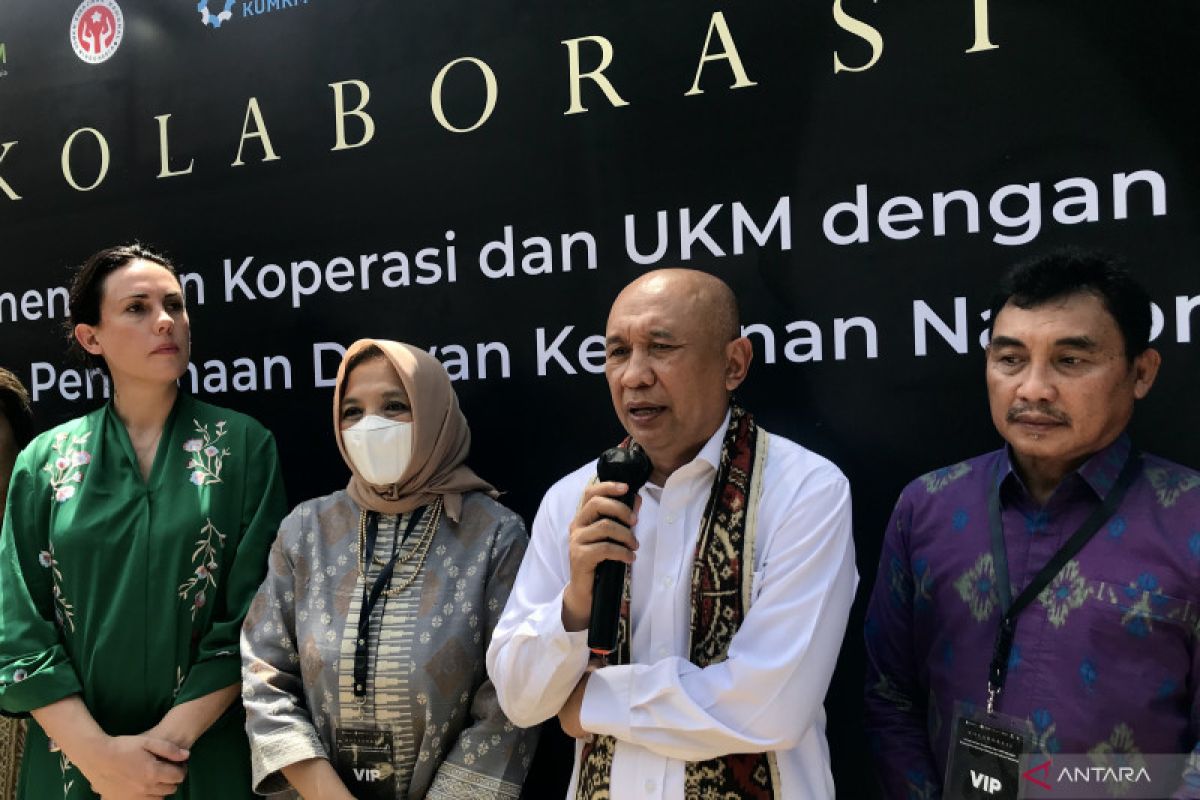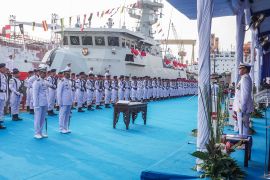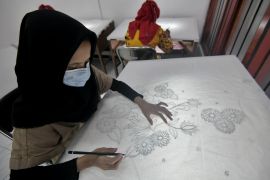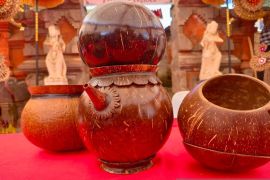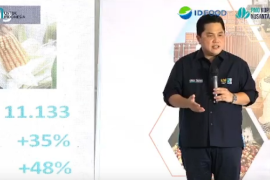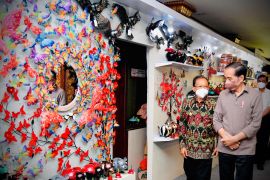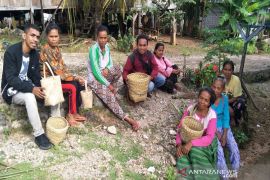...they cannot do it alone due to logistical problems.Badung, Bali (ANTARA) - Cooperatives and Small and Medium Enterprises (SMEs) Minister Teten Masduki has said that strengthening the craft and traditional clothes industries is among the ministry’s priorities since it can empower many small craftspersons.
“Almost all of the raw materials (for the industries) utilize domestic products, and we have a rich culture of handicraft and traditional clothes products, thus they are very diverse," he informed in response to ANTARA's question at the Bali Collection, Nusa Dua, here on Thursday.
Hence, the ministry will improve the craft and traditional clothes ecosystem from upstream to downstream, including in terms of financing, technology, and market access, he said.
Related news: South Sumatra's BKSS to present 200 creative economy businesses
Regarding financing, the Cooperatives and SMEs Ministry is running the cluster people's business credit (cluster KUR) program, which is planned to be tested in 2022 in several industries, including the craft and traditional clothes industries.
“The (funding for the) cluster KUR program can be up to Rp500 million, and the number (of recipients) is not limited. It is important because (to strengthen the industrial ecosystem) MSMEs (micro, small, and medium enterprises) cannot do it alone, (including) to be able to advance and to conduct exports; they cannot do it alone due to logistical problems," the minister noted.
Hence, his ministry is cooperating with a number of parties, such as modern retail space Alun-Alun Indonesia, souvenir center Krisna Bali, and state-run retail and trade company PT Sarinah.
“We are collaborating with various parties who already have domestic and foreign markets. They will facilitate MSMEs to develop their businesses," he informed.
Thus, the cluster KUR will be given to MSME actors who have a partnership or are selling their goods to the listed collaborators.
For instance, the ministry and Krisna Bali are conducting a pilot project to finance craftsmen and MSME actors who are partnering with Krisna Bali through the credit program, Masduki said.
Related news: Ministry, Pertamina helping MSMEs reach global market through festival
On a different occasion, general chairperson of the National Crafts Council (Dekranas), Wury Ma'ruf Amin, had said that craft and traditional clothes businesses were important industrial sub-sectors since they made a huge contribution to the gross domestic product (GDP) and export values.
The craft sub-sector contributed up to 49 percent or US$916 million, or equivalent to Rp13.65 trillion, to the total export value in 2021, while the contribution of the sub-sector to the GDP in 2020 reached Rp166.3 trillion, with the total workforce comprising 3.9 million craftspersons.
Related news: Smesco, BPOM cooperate on MSME licensing
Related news: Minister presses for digitization across all MSMEs business lines
Translator: Genta Mawangi, Uyu Liman
Editor: Fardah Assegaf
Copyright © ANTARA 2022
